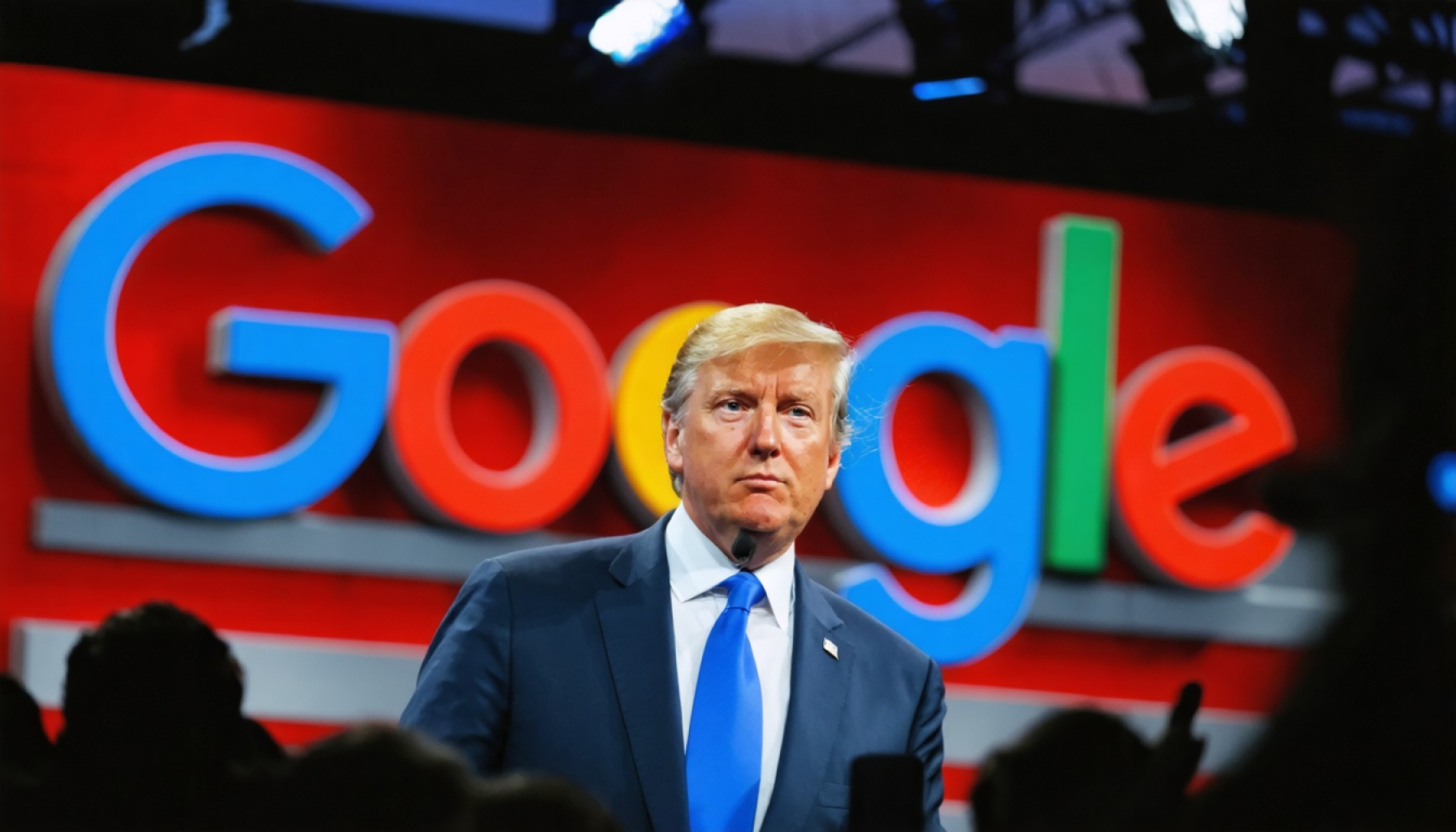
The Legal Showdown: Google’s High-Stakes Battle to Shield Its CEO from the Stand
- Google is in a legal battle in California, seeking to prevent CEO Sundar Pichai from testifying in a trial focused on its privacy practices.
- The “apex doctrine” is being used by Google to argue that Pichai lacks unique, direct knowledge essential for the case, which revolves around tracking of mobile app usage.
- Plaintiffs believe Pichai’s testimony could reveal lapses in privacy protections, shedding light on the management of user data.
- Google’s defense team sees his potential testimony as a distraction from the core technical issues, aiming instead to focus on the intricacies of their privacy policies.
- The trial is indicative of larger privacy and accountability debates in the tech industry, with potential impacts on corporate responsibility and legal standards.
- This case underscores the importance of transparency in how consumer data is managed at the highest corporate levels.
A courtroom drama unfolds in California where Google, the tech powerhouse synonymous with digital life, is striving to protect its CEO, Sundar Pichai, from stepping into the witness box this summer. This move comes amid a legal trial poised to dissect the company’s privacy practices. The heart of the matter? The intricate tapestry of how Google tracks mobile app usage.
In a bid to shield Pichai, Google invokes the “apex doctrine,” a legal principle often employed to prevent senior executives from being embroiled in court disputes unless they possess direct, unique insights pertinent to the case. The tech giant asserts that Pichai, despite being at the helm of the company’s operations, lacks specific knowledge about the nuanced details of the privacy policies embroiled in the current litigation.
The stakes are high. Plaintiffs argue that Pichai’s testimony could illuminate potential lapses in Google’s privacy protections. For them, his insights might untangle the complex web of corporate decisions that influence how user data is managed behind the scenes.
In contrast, Google’s legal team contends that summoning Pichai is less about uncovering truth and more about pressuring the company into settlement talks. They see his involvement as an unnecessary spectacle that distracts from the core technical issues at hand. By steering Pichai off the legal stage, they hope to keep the spotlight focused firmly on the intricate evidence rather than the glamour of a high-profile testimony.
As the trial date edges closer, this legal tug-of-war over the CEO’s role in courtroom drama is symbolic of broader battles concerning privacy and accountability in the tech industry. The outcome may set a precedent for how far up the corporate ladder accountability can be realistically demanded, particularly in an industry where technology races ahead, and the law strains to keep pace.
The key takeaway from this escalating skirmish is clear: the issue of privacy in the digital age is as much about the decisions made in boardrooms as it is about the lines of code written behind the scenes. As consumers, the unfolding narrative reminds us to stay vigilant and informed about how our data is used and negotiated at the highest levels.
As the gavel prepares to drop, all eyes remain glued to California, where the legal stage is set for a showdown that could ripple across the way tech giants navigate privacy concerns in the future.
Google’s Courtroom Battle Over Privacy Practices: Key Insights and Implications
The courtroom drama involving Google in California highlights a significant clash over the tech giant’s privacy practices and the role of its CEO, Sundar Pichai. As the trial unfolds, several aspects are pivotal in understanding both the immediate case and its broader implications for the tech industry and its handling of user privacy.
How-To Steps & Life Hacks: Protecting Your Privacy Online
1. Regular Software Updates: Ensure your apps and operating systems are up-to-date to protect against security vulnerabilities.
2. App Permissions: Periodically review and limit the permissions apps have on your device, restricting unnecessary access.
3. Use Privacy Tools: Consider using tools such as VPNs and privacy-focused browsers to enhance your data protection.
Real-World Use Cases: Impacts of Data Privacy Breaches
Instances like the Facebook-Cambridge Analytica scandal demonstrate how user data can be misused, impacting elections and personal reputations. This serves as a cautionary example of the importance of stringent privacy practices.
Market Forecasts & Industry Trends
As privacy concerns escalate, we can anticipate a surge in demand for privacy-focused technologies. Many companies are incorporating artificial intelligence (AI) and machine learning (ML) to improve data security and privacy measures.
Reviews & Comparisons: Google Vs. Competitors
When comparing Google with competitors like Apple, it’s noticeable that Apple has been more vocal about user privacy as a key marketing tenet. This trial may affect Google’s image and push it towards adopting stricter privacy standards.
Pros & Cons Overview
Pros of Robust Privacy Practices:
– Increased consumer trust and loyalty
– Compliance with regulatory demands, avoiding legal pitfalls
Cons:
– Potential restrictions on personalized services
– Increased operational costs for implementing advanced privacy measures
Controversies & Limitations: The Apex Doctrine
The current use of the “apex doctrine” to shield Pichai raises ethical questions. Critics argue it allows corporations to sidestep accountability, while supporters claim it prevents distraction from core issues. This doctrine’s application may influence future tech industry trials regarding executive accountability.
Insights & Predictions
As privacy discussions continue, companies will likely encounter stricter regulations worldwide. Businesses might need to adapt their data-handling practices to comply with new laws, encouraging a global shift towards transparent privacy policies.
Security & Sustainability: Google’s Efforts
Google has initiated various measures to strengthen user data privacy, including advanced encryption techniques and privacy dashboards. However, sustainability in these practices will require ongoing innovation and dedication.
Conclusion: Actionable Recommendations
– Stay Informed: Regularly update yourself on your preferred app’s privacy policies.
– Advocate for Privacy: Demand transparency from tech providers about how your data is used.
– Stay Skeptical: Evaluate new apps and services critically, understanding how they might access your data.
For more insights into tech and privacy, visit Google and other relevant sources.
The unfolding trial in California underscores the critical importance of privacy in the digital age, serving as a reminder for enterprises and consumers alike about the ongoing challenges and responsibilities concerning data management.















